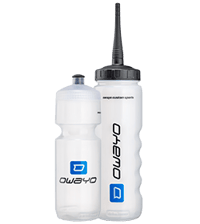Eating before or after exercise - what is best when?
Tips for the right diet before or after exercise, depending on your training goal
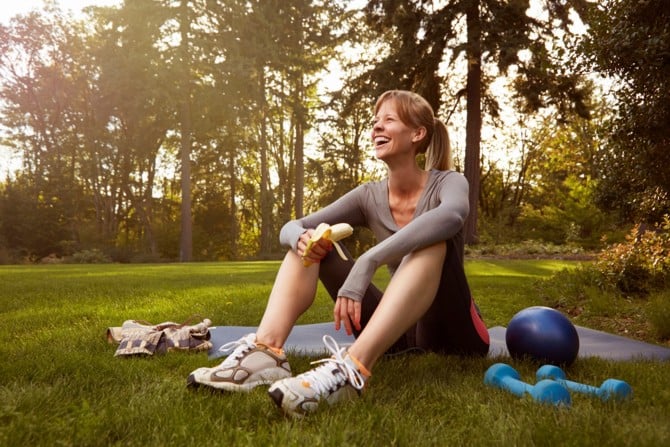
A balanced diet is an important basis for physical fitness. Whether to eat before or after exercise depends on your personal goals. Even experts disagree on this question. You can find information on the right nutrient intake for your training goal here.
Eating before sport
A full belly doesn't like working out? You can't say that across the board. Food is as a source of energy. So it's only logical that eating before training affects your physical performance. If you go to the gym hungry, you will have less energy available. If you eat the wrong thing before exercise, you'll feel off and tired. The truth lies somewhere in between - or in the choice of the right food and the individual training goal.
What and when should you eat before exercise?
You should not eat excessive amounts of food immediately before exercising. You should eat your last large meal about two hours before exercise. This gives the body enough time to digest the food and it is not heavy on the stomach. Otherwise the body is busy digesting and has less energy available. The meal before exercise should contain plenty of carbohydrates and protein.
When it comes to getting a quick energy boost just before exercise, bananas and other fruit, as well as muesli bars or waffles made from corn or rice, are a good choice. These foods contain short-chain carbohydrates, which are particularly easy for the body to break down. They provide you with quick energy before exercise without making you feel bloated.
In comparison, fats are more difficult to digest and do not provide energy directly. On the contrary, the body uses energy first because it is busy digesting fats. For this reason, it is better to avoid high-fat foods before exercise.
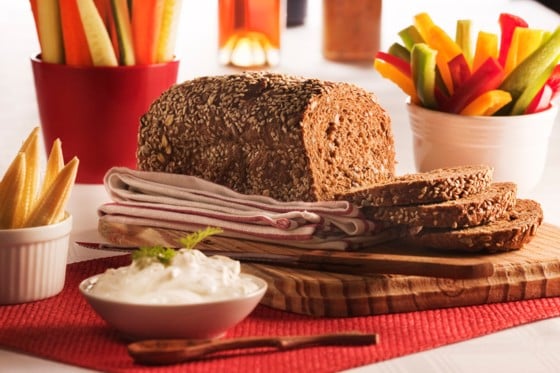
Another example is raw food. This is known to be healthy. However, it is also difficult to digest and should therefore not be eaten before exercise. The same applies to spicy and high-fibre foods, which are an additional challenge for the body to digest.
The following foods are good sources of nutrients before exercise:
The following are just a few foods that contain plenty of carbohydrates:
- Bananas
- Bread
- Oats
- Potatos
- Pasta
- Quinoa
- Rice
- Wafers
The following foods contain plenty of protein:
- Eggs
- Milk Products
- Nuts
In any case, it is advisable to stay away from so-called workout supplements. These usually contain undesirable additives and unnatural stimulants that have nothing to do with a healthy diet before or after sport.
In our article "The right diet for runners", expert Andreas Butz gives tips on how athletes can eat a complete diet and explains: "Dietary supplements are no substitute for a complete diet".
Regardless of your sport or training goal, don't forget to drink plenty of fluids before or after exercise to avoid being dehydrated.
When does it make sense not to eat before exercise?
Burning body fat works better on an empty stomach, especially in the morning. This is because the body draws on fat reserves when carbohydrate stores are empty.
Jogging and other endurance sports before breakfast can help to break down body fat and thus reduce weight.
Strength training on an empty stomach, on the other hand, leads to weaker performance. Without the appropriate nutrients, especially carbohydrates and proteins, the body has no basis for building muscle.
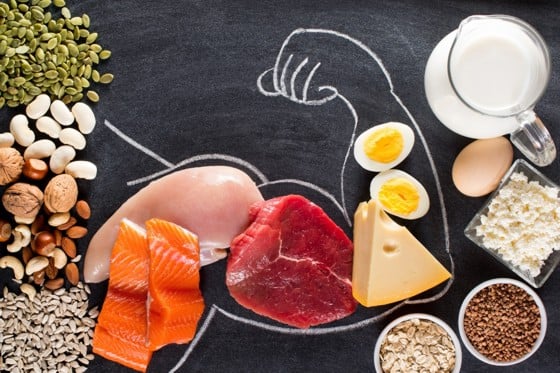
Eating after sport
Eating after exercise is particularly important so that you can replenish your energy stores and recharge your batteries. This provides your muscles with nutrients and promotes regeneration and rebuilding.
Remember to drink enough, especially after exercise. During strenuous activities, the body not only loses water, but also many electrolytes and minerals. You can also compensate for this deficit with isotonic drinks, such as juice spritzers.
What and when is the best time to eat after exercise?
The body needs low-fat, nutrient-rich meals for regeneration. Ideally, you should eat these about half an hour after exercising. Foods rich in carbohydrates and protein such as cottage cheese, oatmeal, chicken or rice are recommended. Adding fruit, for example bananas, not only provides more flavor, but also more carbohydrates.
Which nutrients you need depends on the type of sport and your personal training goal. As a strength athlete, you need significantly more protein to build or maintain muscle. As an endurance athlete, you need a slightly different composition of nutrients.
The following foods are good sources of nutrients after exercise:
The following foods contain plenty of carbohydrates:
- Apples
- Bananas
- Berries
- Beans
- Peas
- Potatoes
- Paste
- Spinach
- Tomatoes
The following food contain plenty of protein:
- Eggs
- Fish
- Chicken
- Milk Products
- Nuts
- Tofu
Protein shakes are a quick and easy way to consume protein. However, it is not advisable to take them as a substitute for a full meal.
A little fat is allowed. Here it is best to look for fats from vegetables, for example in avocados or nuts.
Alongside juice spritzers, coconut water is a drink that restores electrolytes.
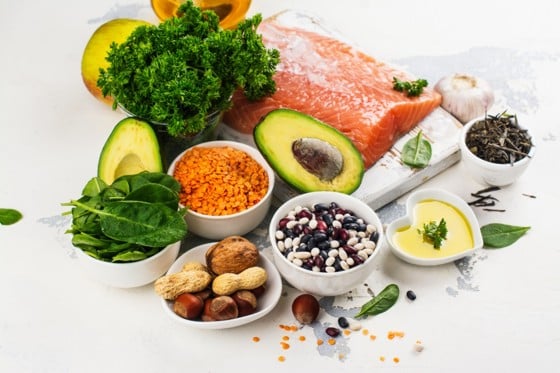
When should you avoid eating after exercise?
As the body needs energy again after exercise, you should never completely refrain from eating after exercise. If the body is not supplied with new energy for too long after exercise, this can lead to muscle breakdown. So eat protein regularly, even if your goal is to lose weight. You can postpone your meal for a while to take advantage of the afterburn effect.
What is the afterburn effect and how can you benefit from it?
As the name suggests, the afterburn effect in the muscles means that calories continue to be burned after exercise. The muscles draw on fat reserves as an energy source when no carbohydrates are consumed. You can take advantage of this by not eating for about one to two hours after exercising. However, make sure that you drink enough fluids and maintain your electrolyte balance!
Find out what you need to know about eating and drinking before and after exercise in this short video:
Eating before or after exercise: Conclusion
Before or after - which is it? There is no general answer to this question. Are you doing strength training to build muscle? Then you need your proteins and carbohydrates before and after exercise. Are your sporting activities geared towards endurance? Then carbohydrates are particularly important for you, as a small snack before exercise and as a substantial meal afterwards. Do you mainly want to lose weight? Then it's better to eat a while after exercise to achieve the after-burn effect. In any case, make sure you have a balanced intake of nutrients and sufficient fluid intake.
Tip: Always have enough liquid with you with your watter bottle from owayo!
On request, you can even design your personal drinking bottle to suit your taste and style - with a font of your choice, your logo or any inscription.
You may also be interested in these magazine articles:
Image credits: Title image: ©gettyimages/Stanton j Stephens, image 1: © gettyimages/Martin Harvey, image 2: © gettyimages/Piotr_Malcyk, image 3: © gettyimages/happy_lark
